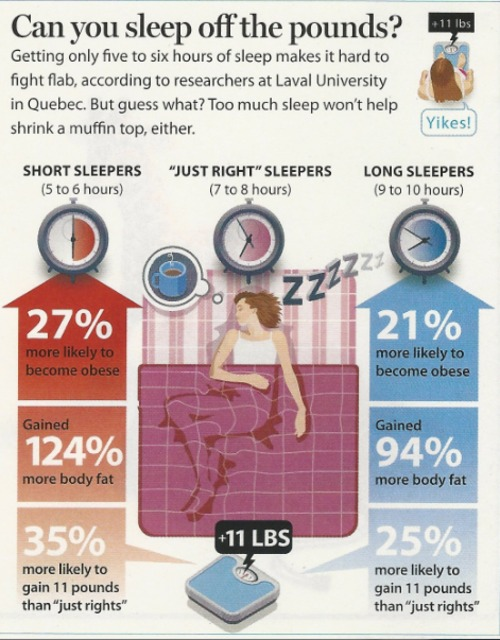Sleep and Weight Gain
How much do you sleep at night? Did you know that how much you sleep can
directly contribute to your weight? Once upon a time, I thought, "Well,
duh. If you sleep more, you can't eat more," but it's more intricate
than that. There are hormones in play that directly contribute to
hunger, which can be affected by sleep or lack thereof.
So if you want to lose weight, or keep weight off, then you need to adjust your sleep to make sure you're getting enough. But don't get too much, either. Find that sweet spot and stick to it for optimal health!
Leptin and ghrelin work in a kind of "checks and balances" system to control feelings of hunger and fullness, explains Michael Breus, PhD, a faculty member of the Atlanta School of Sleep Medicine and director of The Sleep Disorders Centers of Southeastern Lung Care in Atlanta. Ghrelin, which is produced in the gastrointestinal tract, stimulates appetite, while leptin, produced in fat cells, sends a signal to the brain when you are full.So what's the connection to sleep? "When you don't get enough sleep, it drives leptin levels down, which means you don't feel as satisfied after you eat. Lack of sleep also causes ghrelin levels to rise, which means your appetite is stimulated, so you want more food," Breus tells WebMD.
The two combined, he says, can set the stage for overeating, which in turn may lead to weight gain. (Source - WELL worth a full read)
So if you want to lose weight, or keep weight off, then you need to adjust your sleep to make sure you're getting enough. But don't get too much, either. Find that sweet spot and stick to it for optimal health!



Comments
Post a Comment